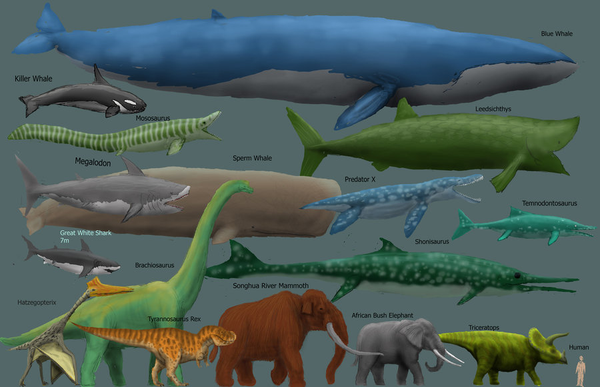Duckweeds are tiny, free-floating, aquatic green plants commonly found in lentic or slowly moving water bodies. Members of the family Lemnaceae include the world's smallest angiosperms and are commonly known as duckweeds.
- Why duckweed is bad?
- Is duckweed good for anything?
- Where does duckweed come from?
- What causes duckweed in a pond?
- Should I remove duckweed from my pond?
- Can duckweed clean water?
- Does duckweed oxygenate water?
- How long does it take for duckweed to multiply?
- Can you eat duckweed?
- What fish will eat duckweed?
- What do I feed duckweed?
- How do I keep duckweed out of my pond?
- Is duckweed bad for a pond?
- Will ducks eat duckweed?
- Is duckweed good for frogs?
Why duckweed is bad?
Duckweed, though, can be a huge problem in a pond. ... This will encourage growth of anaerobic bacteria, which create toxic water conditions that can kill fish, turtles, and other plants and further encourage the duckweed proliferation. That's all bad. Smaller backyard ponds generally don't have much trouble with duckweed.
Is duckweed good for anything?
Duckweed grown on nutrient-rich water has a high concentration of trace minerals, K and P and pigments, particularly carotene and xanthophyll, that make duckweed meal an especially valuable supplement for poultry and other animals, and it provides a rich source of vitamins A and B for humans.
Where does duckweed come from?
Duckweed tends to grow in dense colonies in quiet water such as ponds, marshes, lakes and slow-moving streams. Often more than one species of duckweed will be associated together in these colonies.
What causes duckweed in a pond?
Duckweed is commonly spread by migratory birds flying between ponds with the tiny plants clinging to their feathers. ... This means that in just two weeks, a single parent plant can result in up to 17,500 plants! Extensive mats of duckweed colonies may cover an entire pond surface, depleting oxygen and blocking sunlight.
Should I remove duckweed from my pond?
Unless you simply hate the look of duckweed on your pond, the only reason you would need to remove it is if the duckweed is growing too fast and causing issues with water conditions. This is especially true in ponds with fish, as excess duckweed can actually reduce oxygen levels and cause harmful spikes in ammonia.
Can duckweed clean water?
The advantage of duckweed is not just its speed of growth but because it grows on water, it frees up the land for farming food crops. Plus with its water purifying properties, it leaves clean water behind.
Does duckweed oxygenate water?
Algae and duckweed produce oxygen as a by-product of photosynthesis. This is vital for aquatic creatures. ... The water separates into warmer, oxygen-producing surface levels and colder, oxygen-consuming lower levels, due to shade from surface vegetation.
How long does it take for duckweed to multiply?
It will take 10 days or so for the duckweed to multiply.
Can you eat duckweed?
As Human Food
The greatest feature regarding duckweed is that it can be eaten by human beings. Duckweed has a flavor similar to spinach or watercress. The wolffia species has long been a staple of Asian cuisine, with Thai, Burmese, and Laotians using it as a healthy veggie.
What fish will eat duckweed?
Fish. Grass carp (Ctenopharyngodon idella) and koi, which are domesticated varieties of common carp (Cyprinus carpio), are two of the most well-known species of fish who feed on duckweed. According to Ohio State University, while grass carp eat the plants while they are growing.
What do I feed duckweed?
with dechlorinated water, aquatic plant fertilizer, a drinking straw, pH meter, thermometer, and small net. Clean the tank without chemicals or soap, then add water. If treated tap water is used, add the plant fertilizer.
How do I keep duckweed out of my pond?
Duckweed prefers stagnant or slow-moving water; so install a fountain or a waterfall to keep your water circulated and aerated. Add extra oxygen into your pond through an air pump, which will vastly improve the water quality. Adding fish into your pond may also help to control the Duckweed, as they will it.
Is duckweed bad for a pond?
Duckweed is not harmful to your pond or any fish or animals living in the pond. ... Duckweed takes up a lot of nitrogen from the water and can help control nutrient loading problems, however, to some, this growth is unsightly or shades so much surface area that other plants in the pond fail to thrive.
Will ducks eat duckweed?
“Ducks love duckweed”… ... Ducks may love duckweed, but they don't love it enough to keep it from spreading over your pond too fast. Common Duckweed, of the genus Lemna, is a tiny plant that floats on top, or slightly below the surface, of the water.
Is duckweed good for frogs?
Pesticides, herbicides and chlorinated water are not advised for a frog habitat. You can leave the duckweed as it takes up nitrates in the water. Harder to control is stringy algae. Nothing eats it and it will cover the surface of the pond and shade out everything else.
 Animalscaretips
Animalscaretips



